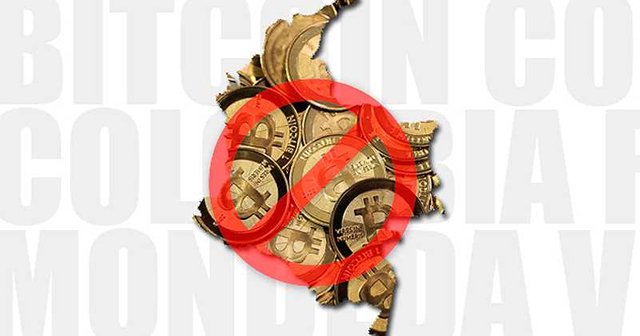HOW WE SEE THE BITCOIN IN COLOMBIA
HOW WE SEE THE BITCOIN IN COLOMBIA

The bitcoin in Colombia is no longer just a fad: this coin has grown so much in the country, which already weighs almost like the national tourism industry. At the beginning of this year (when the price of bitcoin was around US $ 14,000), Citi Research published an investigation in which it showed that the value of the cryptocurrency in the country already exceeded 2% (the tourism industry represents 2, 8%).
the Bank of the Republic, through the Financial Superintendence, pronounced in 2014 on the subject. At that time, pursuant to Law 31 of 1992, it was established that the peso is the "only means of payment of legal tender with unlimited power of attorney".

As a result, bitcoin "is not an asset that has equivalence to the legal currency, the peso, in Colombia because it has not been recognized as a currency in the country," the Issuer said.
Some of the warnings that the Superintendency makes are that the transactions in bitcoin platforms are anonymous, so the use of virtual currencies can be lent to carry out illicit or fraudulent activities, even for unauthorized fund raising, money laundering and financing of terrorism.
Its presence continues to be an important factor, so it does not stop worrying that there is such a representative sector that changed its value sharply in such a short time. Likewise, Bloomberg issued a report in which it reveals that Colombia is the third country in the world (and the first in Latin America) in which currency transactions have grown the most; the first and second places belong to China and Nigeria. It is a rise of more than 1,200% in just 2017.
This means that the behavior of this controversial and volatile cryptocurrency matters to the Colombian economy more than previously thought. This is why it is time to take seriously some of the most worrying peculiarities of bitcoin, such as its encryption that makes it virtually impossible to track who is behind the transactions. A feature that has made it the preferred payment medium for computer hijacking (known as ransomware), and can quickly become an alternative to money laundering.
In countries such as Colombia, where there is a large amount of money that moves through drug trafficking, illegal groups see in the criptmonedas an opportunity to move that money undetected. And it stands out that Colombia is one of the countries where the volume of negotiations has increased the most: the historical illicit activities could be that differentiating factor that is making us lead.
bitcoin already represents 2% of Colombia's GDP, means that this market has grown more than we thought in the economy, so undoubtedly it is time for the Colombian authorities to intervene. The Government must prevent the use of this cryptocurrency as a means of payment to prevent it from entering commerce and other key sectors. Those who want to bet with this currency that they remain within the international sector of high risk investments.
by the nature of bitcoin, which makes it too difficult to track, making it ideal for money laundering or tax evasion. And do not forget that Colombia is a country where there is too much illicit money. Also, if there are problems to detect off shore accounts, which at least leave some kind of trace, with cryptocurrencies the problem is even more serious ".

In fact, the same Bank of the Republic recognizes in one of its documents that one of the main challenges of cryptocurrencies is "financial integrity in terms of money laundering and financing of terrorism (LA / FT) and the corresponding preventive measures of transactional monitoring, in addition to the obligation to report certain movements to the control authorities. By their nature, cryptocurrencies are platforms that can facilitate the movement of resources associated with ML / TF and, therefore, that participants are monitored by the competent authorities. "
In this way, the bitcoin has to be seen with new eyes, not only because of the intrigue generated by this asset that breaks the standards, but also because it is increasingly important in the country.
Ads such as Facebook, which will prohibit the advertising of cryptocurrencies, the threats of the US government to regulate the market or the collapse suffered by the latter last Monday after four banking giants banned buying bitcoin with their credit cards could affect any it forms the Colombian economy.
Support me in these sources:
Posted using Partiko Android